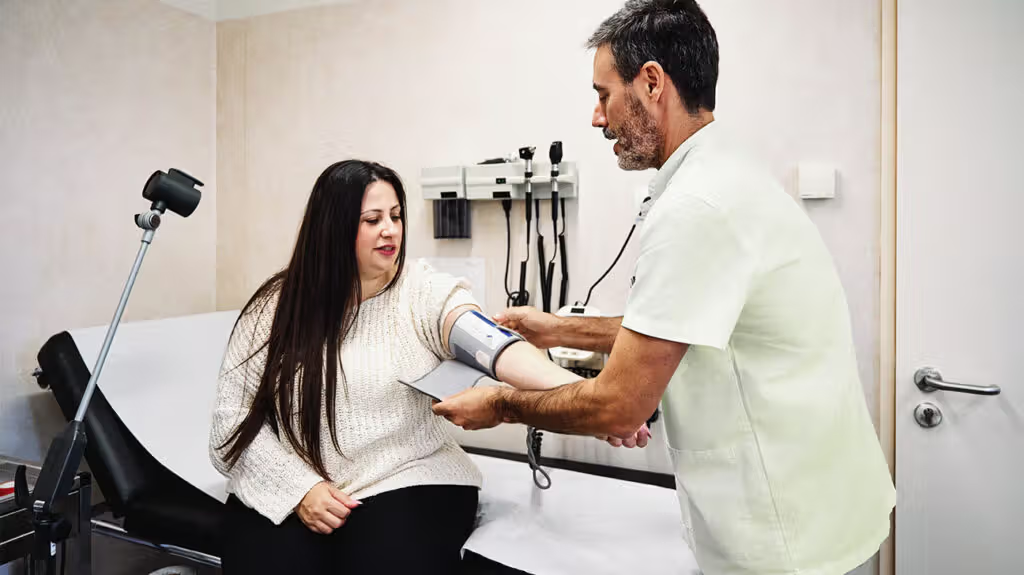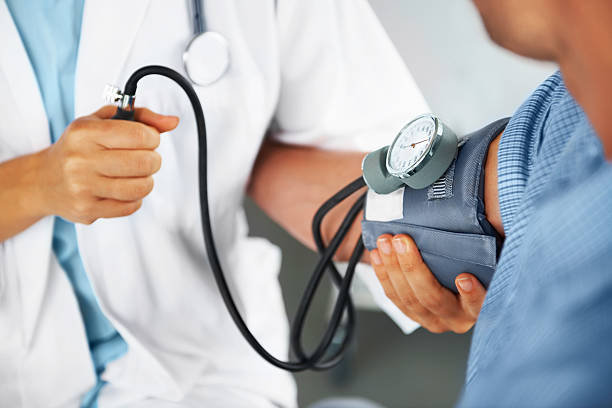Introduction
High blood pressure, also called hypertension, is one of the most common health conditions worldwide. According to the World Health Organization (WHO), it affects more than 1.28 billion adults globally. If left untreated, it can lead to serious complications such as heart disease, stroke, and kidney problems.
In this article, we’ll explain what high BP is, its causes, symptoms, treatments, and prevention tips — in simple, easy-to-understand language.

What is High Blood Pressure?
High blood pressure happens when the force of blood against artery walls is consistently too high. This puts extra strain on your heart and blood vessels.
Blood pressure is measured in millimeters of mercury (mmHg) and is recorded as two numbers:
- Systolic pressure (top number): Pressure when the heart beats
- Diastolic pressure (bottom number): Pressure when the heart rests
According to the American Heart Association:
- Normal: Less than 120/80 mmHg
- Elevated: 120–129 / <80 mmHg
- High BP Stage 1: 130–139 / 80–89 mmHg
- High BP Stage 2: ≥140 / ≥90 mmHg
Common Causes of High Blood Pressure
High blood pressure can develop for many reasons. Some causes are lifestyle-related, while others are medical conditions.
1. Lifestyle Causes
- Eating too much salt (sodium)
- Lack of physical activity
- Being overweight or obese
- Excessive alcohol consumption
- Smoking
2. Medical Conditions
- Chronic kidney disease
- Hormonal problems (thyroid disorders, adrenal tumors)
- Sleep apnea
- Diabetes
Symptoms of High Blood Pressure
High blood pressure is often called a “silent killer” because many people have no symptoms until complications occur. However, some warning signs may include:
- Headaches
- Shortness of breath
- Nosebleeds
- Chest pain
- Blurred vision
If you have these symptoms, especially with very high readings (≥180/120 mmHg), seek medical help immediately.
Why High Blood Pressure is Dangerous
If uncontrolled, high blood pressure can damage blood vessels and organs, leading to:
- Heart attack
- Stroke
- Kidney failure
- Eye damage (hypertensive retinopathy)
According to Mayo Clinic, even slightly elevated blood pressure over time increases health risks significantly.
Diagnosis
Doctors diagnose high BP using:
- Blood pressure monitoring (multiple readings over days)
- Blood tests (kidney function, cholesterol)
- ECG or echocardiogram (to check heart health)
Treatment & Management
Treatment depends on your readings and risk factors.
Lifestyle Changes:
- Eat more fruits, vegetables, and whole grains (DASH diet)
- Reduce salt intake to less than 5g per day (WHO guidelines)
- Exercise at least 30 minutes a day
- Avoid smoking and limit alcohol
Medications (if needed):
- Diuretics
- ACE inhibitors
- Calcium channel blockers
- Beta-blockers
Always take medicines as prescribed by your doctor.
Prevention Tips
You can lower your risk of high blood pressure by:
- Maintaining a healthy weight
- Managing stress through meditation or yoga
- Limiting processed foods
- Getting regular health check-ups
When to See a Doctor
Seek medical advice if:
- Your blood pressure is consistently above 130/80 mmHg
- You experience chest pain, severe headache, or dizziness
- You have a family history of hypertension or heart disease
FAQs About High Blood Pressure
1. Can high BP be cured?
Not always, but it can be controlled with lifestyle changes and medication.
2. Does drinking water lower blood pressure?
Staying hydrated helps overall health, but it is not a cure for hypertension.
3. Is coffee bad for high blood pressure?
Excess caffeine may temporarily raise blood pressure, so limit intake if sensitive.
4. How often should I check my blood pressure?
Adults over 40 should check at least once a year. If you have risk factors, check more often.
5. Can stress cause high blood pressure?
Yes, chronic stress can contribute to hypertension.

